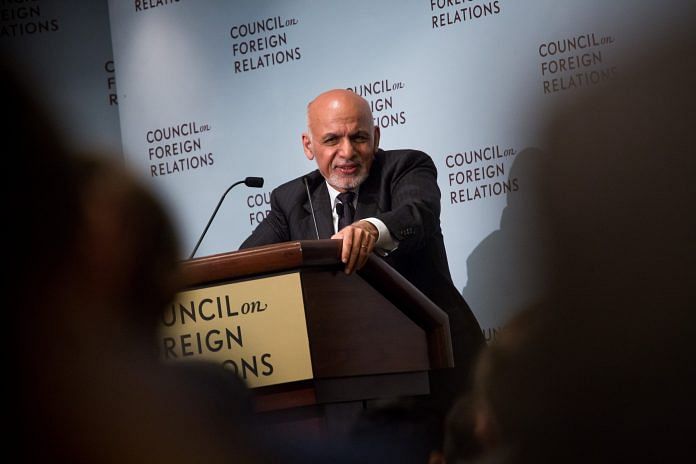New Delhi: Over four months after the contentious Afghanistan presidential elections, the country’s independent election commission has has finally declared incumbent President Ashraf Ghani the winner.
As Ghani prepares to begin his second term in office, serious hurdles already await him. His key electoral opponent, Abdullah Abdullah, has already refused to accept the result, with his supporters declaring the move to run a parallel government — a near-repeat of the situation in 2014.
If Abdullah manages to go ahead and establish a parallel government, it would make him the third executive power centre in Afghanistan. Taliban, which has waged an insurgency against the state since 2001, and controls large swathes of Afghan territory, is leading the second one.
A contentious election result, an urgent need to deliver basic public goods, a deteriorating security situation, and testy relations with the US are just some of the issues awaiting Ghani in the first few weeks of his renewed tenure.
As he gets set to take the Kabul chair back, ThePrint presents key highlights of the Afghan president’s political career.
Also read: Afghan peace will depend on whether Taliban will commit to ending its ties with al Qaeda
Ghani before becoming President
Ashraf Ghani belongs to Afghanistan’s majority Pashtun community, and he spent a majority of his lifetime outside the country.
The 70-year-old is a trained anthropologist from the Columbia University in the US. He served as an academic at various US institutions, including the Johns Hopkins University. Ghani then moved on to work at the World Bank and the United Nations between 1991 and 2001.
When the Taliban government fell in 2001, he returned to Afghanistan after 24 years. In February 2002, he was appointed as the chief adviser to then President Hamid Karzai. Back then, he worked closely with Abdullah, who was foreign minister in the same administration.
By 2004, Ghani fell out with Karzai and took on the job of Kabul University’s chancellor. For the next few years, he developed the image of a reformer and a critic of the Karzai government.
“He was also a vocal critic of the way international aid money was being wasted in Afghanistan, and, in particular, money from the US, which he saw as operating in a “parallel state” which hired the best Afghans to service foreign offices in the capital Kabul, rather than building effective Afghan institutions,” noted a BBC report from last year.
However, he rose to fame in 2009, when he decided to contest the presidential election against Karzai. With little political support, he finished fourth and managed to secure only 3 per cent of the votes. Karzai was reelected to serve another term in office.
Also read: 4 key terrorists wanted by Pakistan killed since mysterious escape of Taliban leader
Fraught presidential term
With the Afghan constitution banning a third presidential term, leaving Hamid Karzai out of the picture, Ashraf Ghani decided to contest the elections again in 2014. Abdullah Abdullah was his key competitor even then.
“He (Ghani) built a solid base of support after raising his profile in province after province as the head of the team managing the transition of military control from the US-led coalition to Afghan forces,” noted the BBC report.
Ghani managed to emerge as the winner, but his victory was tarnished by accusations of fraudulent voting in his favour.
Under a US-mediated deal, Ghani and Abdullah agreed to share power and formed the national unity government. In this arrangement, Ghani was the president, while Abdullah the chief executive officer (CEO).
Within months, stories of factionalism and turf wars began to emerge. Both Ghani and Abdullah accused each other of trying to undercut the other’s influence, and in turn, driving away prospects of delivering effective governance.
Under the shadow of Taliban
Meanwhile, the security situation in Afghanistan continued to deteriorate with repeated attacks by the Taliban.
According to the Long War Journal, the Afghan government currently controls 33 per cent of the country’s districts and the Taliban controls 19 per cent. The remaining is contested between the two.
During the ongoing peace negotiations between the Taliban and the US government, the Ashraf Ghani government isn’t even a party. Taliban refuses to recognise the legitimacy of the Kabul government.
With a contested electoral result, and his government cut off from peace negotiations that could define Afghanistan for decades to come, Ghani is looking at a term under very testing conditions.
Also read: Modi’s Neighbourhood First push is being pulled down by decades of policy stagnation



